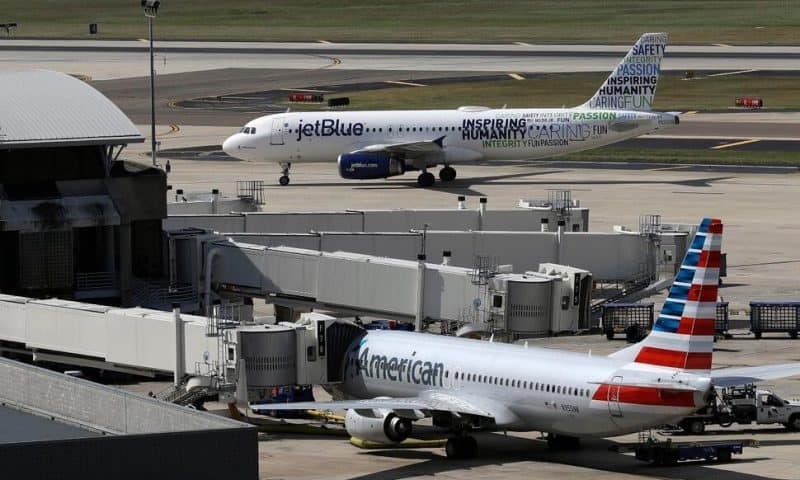American Airlines and JetBlue are trying to salvage parts of their partnership in the Northeast, even after a federal judge ruled they must break up the deal
American Airlines and JetBlue said Friday they should be allowed to keep selling tickets on each other’s flights in the Northeast and link their frequent-flyer programs despite losing an antitrust trial over their partnership.
The Justice Department said if the airlines get their wish, travelers would miss out on the benefits of restoring competition between the carriers.
In separate filings, the airlines and the government told a federal judge in Boston how he should carry out his ruling last month to break up the partnership. American’s CEO has said his airline will appeal the verdict.
The Justice Department proposed a final judgment that would order American and JetBlue to end most parts of the deal immediately. The government said the airlines should honor existing tickets to avoid hurting travelers, but then quickly wind down their sharing of airport gates and takeoff and landing slots at key airports.
The airlines want to keep selling tickets on each other’s flights — called code-sharing — and offering reciprocal frequent-flyer benefits because those practices “are common in the airline industry.” American and JetBlue also objected to the Justice Department’s request that they be barred from any deals involving revenue-sharing or coordinating routes with each other for 10 years, and with any other U.S. airline for two years.
The airlines call their partnership in New York and Boston the Northeast Alliance, or NEA.
The Justice Department said that by asking to keep elements of the deal, the airlines are trying “to craft a new ‘NEA Lite’ on the fly.”
The airlines launched their partnership after getting approval from the outgoing Trump administration in January 2021. They argued it helped them compete against Delta Air Lines and United Airlines in the Northeast.
The Biden administration sued the airlines in September 2021, arguing that their deal would reduce competition and raise prices for consumers. After a non-jury trial last fall, U.S. District Judge Leo Sorokin ruled that the NEA violated federal antitrust laws.

